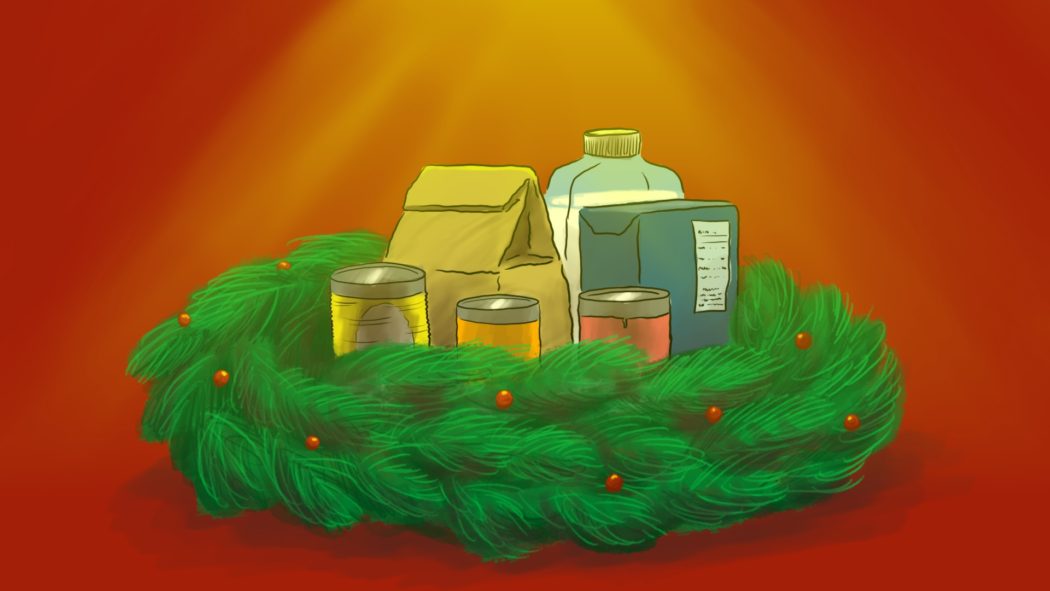Opinion: Christmas in 2020
It’s hard to believe that 2020 is coming to an end.
Families worldwide are looking forward to the holidays, although there is no question that it will be a time of heartache and loneliness for many. Over 200,000 Americans have died from COVID-19 so far. That fact — along with everything else this year has had in store for us — has resulted in extreme physical and mental fatigue for many.
Public health experts’ recommendations have been difficult to follow. Most of us have been tempted to attend celebrations, special occasions, or any sort of get-together at one time or another. With the holidays in full swing, that temptation has grown tenfold.
Whether Americans choose to social distance during the holidays or not, one thing is certain: It will be a different Christmas. As Natasha Hinde writes, “the Christmas tunes are playing, the turkey’s in the oven — but this year, your house isn’t filled with loads of people. In 2020, December 25 is likely to be a quieter affair.”
And that’s ok.
According to a survey conducted by Accenture, 40% of Americans said they were “not looking forward to the holiday season due to COVID-19” and 35% said they were “not looking forward to the holiday season for other reasons, such as grieving a loved one or being apart from family and friends.” With morale at an all-time low, the primary focus of this Christmas should be to help those around us who are struggling.
Visiting family and neighbors who are lonely might not be possible in person, but sending a letter letting them know that you are thinking of them will surely lighten their day. It may seem simple, but just checking up on someone can ease your own anxieties as well.
A big misconception is that any activity outside the home contributes to the spread of the virus and that indefinitely isolating oneself is a good thing. This kind of thinking is, quite frankly, harmful.
While it is crucial to follow the guidelines that health officials have laid out, there is a dire need for communities to take action to combat food insecurity.
Self-isolation and social distancing are making it even more difficult for food to be distributed to those in need. The sad truth is that more than 50 million Americans may face hunger by the end of the year.
In Utah, hunger is a bigger problem than one might think. The Feeding America organization estimates that out of the 347,370 people that are struggling with hunger in our state, 113,190 are children. The food insecurity rate for children in Cache County alone is expected to jump from 11.9% in 2018 to 13.9% by the end of 2020.
What better way to get into the Christmas spirit than to help those less fortunate? Creating or participating in local food drives is a perfect opportunity to do just that. The Cache Community Food Pantry is always accepting food donations and looking for volunteers. Money donations are also accepted through their website.
Currently, one-third of USU students at the Logan campus are unable to obtain a sufficient amount of food. Our very own on-campus food pantry has been fighting to change that. The Student Nutrition Access Center (known as SNAC) provides canned food, bread, and fresh produce to anyone at Utah State that may struggle financially, or simply cannot afford healthy options for food. SNAC has continued to aid students and staff through the pandemic and now offers contactless order-and-pick up.
Last year I had the opportunity to spend a few months as a volunteer for a food bank. Watching the faces of parents light up as they gathered food for their children was an experience I will never forget. The busiest time was during the Christmas season. I can only imagine how local food banks are handling the demand now.
While there may be fewer carolers and concerts this Christmas, these unanticipated circumstances offer us the chance to start new traditions with family and friends, while also tackling the issue of food insecurity.
More than anything, Americans want a meaningful Christmas. With many families unable to gather this year, there has been increased empathy from friends, neighbors, and strangers alike. You don’t need to look far to find opportunities to help others. If we do our part to combat hunger in Logan, I have no doubt this Christmas will be a special one.

Brayden Rigby is a sophomore studying Journalism. He enjoys writing of any kind, and spends most of his free time running and swimming.
brayden.rigby@usu.edu

